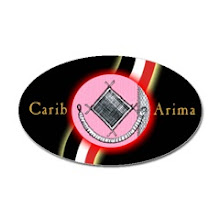 Guyana, South America (Stabroek News) - The inaugural Guiana Shield Regional Meeting of Indigenous Leaders ended on Friday last with leaders noting that much needs to be done in relation to matters affecting indigenous peoples.
Guyana, South America (Stabroek News) - The inaugural Guiana Shield Regional Meeting of Indigenous Leaders ended on Friday last with leaders noting that much needs to be done in relation to matters affecting indigenous peoples.Guyana’s representatives, meanwhile, expressed concern at President Bharrat Jagdeo’s offer of the rainforest in the fight against climate change, pointing out that little is known about this. Although they were told that their titled lands would be a part of the initiative only if they wished, they said, the lack of information and the issue of their traditional land as opposed to titled land was an issue of grave concern.
The Guiana Shield Regional Meeting was organised by the three national level indigenous organizations of the region-the Amerindian Peoples Association (APA) of Guyana, Organisation Van Inheemsen (OIS) of Suriname, and the (FOAG) of French Guiana, in coordination with the Fédération des Organisations Autochtones de Guyana Village Amérindien Coordinator of Indigenous Organizations of the Amazon Basin (COICA) and the Amazon Alliance.
It was intended to provide participant organisations with a quick overview of the major threats facing the indigenous peoples and their environment in these countries, including climate change and Reducing Emissions from Deforestation and Forest Degradation (REDD), the Initiative for the Integration of Regional Infrastructure in South America (IIRSA) and the impacts of mining. The delegates also met government representatives, non-governmental organizations and multilateral institutions.
Tony James, head of Guyana’s Amerindian Peoples Association (APA) cautioned delegates that the plans and the resolutions made over the past few days did not spell the end of the road. He urged the leaders to carry back the information to their communities and to play meaningful roles in ensuring that members of the communities are informed.
This was echoed by other leaders. “The language barrier should not be an obstacle anymore,” said a representative from French Guiana. “We have our interests and it is the interests of future generations,” he added. Another noted that accessing information in the Guianas is a challenge.
Meanwhile, as it related to climate change efforts in Guyana, it was stated that at a meeting with Jagdeo, he assured the leaders that there would be consultations. However, noting that it was a complex issue, one delegate said that they were being asked to support positions without having the information. “We need more information than anything else.”
Jean La Rose of the APA raised the issue of traditional land as opposed to titled land, with the former not always being a part of the latter. This was a concern, she said.
Source: Stabroek News
 Naniki Reyes Ocasio (Boriken Taino), UN General Assembly President
Naniki Reyes Ocasio (Boriken Taino), UN General Assembly President 






